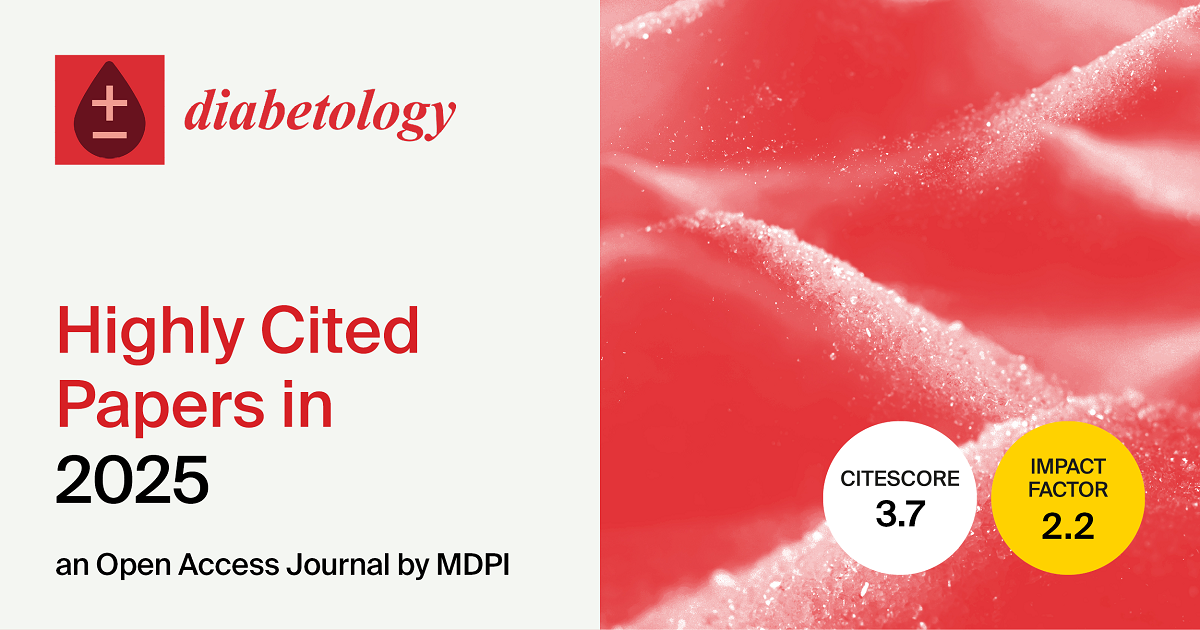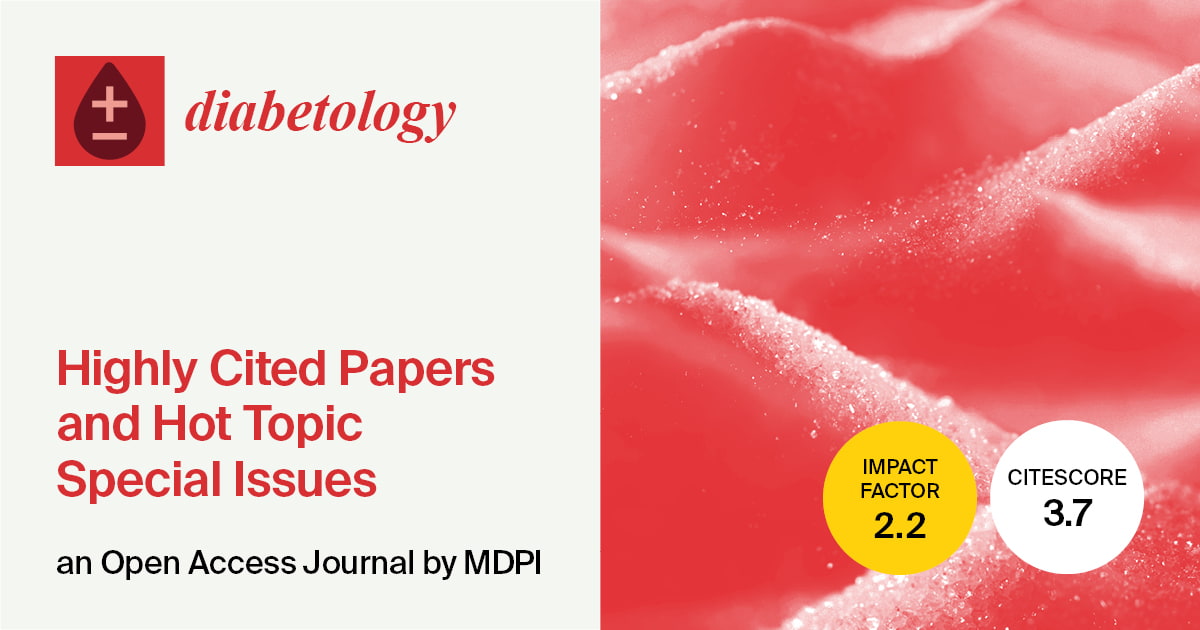- 2.2Impact Factor
- 3.7CiteScore
- 27 daysTime to First Decision
News & Conferences
Latest News & Announcements
Latest Conferences
Propose a Conference Collaboration
Promote and publicise your upcoming conference with MDPI.
All News & Conferences
News & Announcements
Diabetology | Highly Cited Papers in 2025
24 December 2025
News & Announcements
Article Layout and Template Revised for Future Volumes
11 December 2025
News & Announcements
Diabetology | Special Issue “Feature Papers in Diabetology 2023” Reprint
20 November 2025
News & Announcements
Diabetology | Special Issue “Risk of Type 2 Diabetes Mellitus: Cardiorenometabolic Syndrome and Its Components” Reprint
20 November 2025
News & Announcements
World Diabetes Day, 14 November 2025
14 November 2025
News & Announcements
MDPI Launches the Michele Parrinello Award for Pioneering Contributions in Computational Physical Science
6 November 2025
News & Announcements
MDPI INSIGHTS: The CEO's Letter #28 - WSF11, Nobel Laureates, Proofig AI, Romania Summit, STM and FBF
4 November 2025
News & Announcements
Diabetology | Highly Cited Papers and Hot Topic Special Issues
24 October 2025
News & Announcements
MDPI’s Newly Launched Journals in September 2025
15 October 2025
News & Announcements
MDPI INSIGHTS: The CEO's Letter #27 - OASPA 2025, COUNTER 5.1, UK Summit in London, MDPI at the Italian Senate
2 October 2025
News & Announcements
2024 MDPI Top 1000 Reviewers
1 October 2025
News & Announcements
Nobel Prize — The Science Behind the Prize
30 September 2025
of 8











